This is the second and final part of our interview with Robb Wolf. To read [part one of our interview click here.]
Robb Wolf was a former research biochemist and review editor of the Journal of Nutrition and Metabolism. He co-founded the very popular nutrition and athletic training journal, The Performance Menu and is co-owner of NorCal Strength and Conditioning. A student of the renowned Professor Loren Cordain, Wolf is known the world round as an extremely well versed and rational source of dietary knowledge.
Wolf’s 2010 book, The Paleo Solution was a New York Times best seller and his website RobbWolf, has become one the most prolific websites for Paleo dietary and nutritional information in the world.
Part two continued:
So Robb, there has been a lot of confusion about quinoa so is it Paleo or should it be avoided by those following the Paleo diet?
Quinoa is botanically a fruit but via convergent evolution it looks a whole lot like a grain and so it uses the same anti-predation techniques that a grain has. Anything in biology, if it doesn’t have teeth, thorns, horns or poison or it can’t run away, so something is going to eat it and with grains they are the reproductive structure of the plant.
Certain plants use a give a little/get a little process. There is reciprocity, where they produce fruit like berries and a bear will eat the berries and drop the berries off in a fertilized package creating a symbiotic relationship. But the actual seeds in the berries, for example apples, have things like cyanide, they have protease inhibitors and they have these chemicals that prevent the breakdown of these things as food because if that thing goes that’s it, that’s the end of the line for that particular organism.
So that lineage is not going to reproduce and quinoa is the same way. These things are not benignly hanging out shouting, “come and eat me.” Quiona is similar to grains and has anti-predation chemicals in it. One of the main ones being saponins, which are soapy like substances that are pretty well understood to cause intestinal permeability. They actually punch holes through the intestinal lining. Then you can get leakage of intestinal contents into the body so you can end up with a leaking gut and an autoimmune response and systemic inflammation.
So that’s the problem with quinoa. Can you soak it and sprout it and decrease these anti-nutrients? Absolutely. Lots of folks out of the Weston A Price Camp buy into that scene but for me your taking (what is in my opinion) a substandard food doing some processing to it to make it less substandard.
So your final take for people that train CrossFit would you advise to eat it or stay away from it?
I would go more like yams, sweet potatoes, bananas and that sort of stuff. I think you get more nutrition for your caloric content relative to quinoa.
If you like quinoa and you process it and soak it and get the saponins out, knock yourself out, that’s great. If you have an autoimmune disease I absolutely would not go near it. And if you have some sort of systemic inflammation, chronic fatigue fibromyalgia, (people running gyms run into a lot of folks with stuff like this) that’s where for me I tend to recommend a pretty Spartan approach in the beginning. So no grains, no legumes, no diary: do that for 30 days then re-introduce and see how you do. What we have found is that a ton a people with wacky inflammatory problems that were undiagnosed or unknown autoimmune diseases all of a sudden feel a ton better.
Just as an interesting sideline, food biologists know that quinoa has these saponins and that it is tough on the digestive tract. So they’ve developed a low saponin variety of quinoa and the interesting thing with that is that they cannot get that variety of quinoa out of the field because the birds eat all of it. So this should wake people up. If quiona has its normal level of saponins critters don’t really eat it in the wild but if you remove the saponins all of a sudden it’s like a buffet. The critters eat it at such a rapid clip that it’s hard for the food biologists to collect any of the seed to bring it back in and analyse it.
So it’s kind of that old theory if the birds don’t eat the berry the humans shouldn’t either?
It’s probably a pretty good bet, yeah.
So you are leaning towards staying clear from it if you can?
Yeah. I would use it more as a condiment. I would use it more when you go out to eat. If you have family members who are un-budging on their food then this is the place you can have some latitude.
I generally eat it almost like porridge but I always wondered whether or not I should just remove it from my diet.
It’s something that I would tinker with for a month then remove it see how you look, feel and perform then reintroduce it and see again how you look, feel and perform.
It may not matter to you in which case it’s not a problem so just go for it then. Not everybody has the same type of reactivity to everything but it’s that thing that I still fall back on in general when people eat more this way than not this way they seem to feel really good.
I have a few questions in relation to training. So I’ll jump straight in. Say I am a Games athlete: I’m fit and strong and am trying to decide between the Zone and Paleo diets. How would you say I decide which way to go?
Shoot I mean I would look at what you’ve been doing and maybe try something different and I would do it at a non critical point in your training. So obviously not right before a competition but at some point where you have a heavy enough block of training so you can really analyze the efficacy of what you’re doing.
For me, what I have found with Zone and I have done a number of blog posts on this where people went from eating a standard 16 block zone, 4x/5x fat, then they ditched the weighing and measuring and just ate a lot of protein, they ate significant amounts of protein and carbs post workout and for other meals they ate protein, fat and veggies and they just went a little bit more instinctively.
What I found again and again and again, was that people ended up getting leaner, stronger and they were turning better performance and shockingly they had a lot less neurosis about their food. This isn’t to say there is not a place for weighing and measuring your food but I am just a little bit hard pressed to find where that is.
You know working with MMA athletes and something to throw out there I have worked with a lot of CrossFit Games competitors and top ten finishers both with regard to the Affiliate Cup and individual male and females. We had a sixth place female finisher in Jenny LaBaw, couple of years before that we had a third place Affiliate Cup finish, so it’s not like I’m just floating around out there with an armchair opinion on this. We have produced some finishers.
And they were just doing Paleo?
They were just doing Paleo and it’s rare that I find the need to start weighing and measuring food. Typically if I do, it’s when people are under eating. But immediately what we see is a difference and what’s the difference between typically eating Paleo and then eating Zone? Typically, their protein increases, their carbs increase, their fat may or may not increase with this athletes ramped up Paleo gig.
We start taking advantage of post workout nutrition to shuttle more carbs in during the post workout window. So we start getting some nutrient partitioning instead of having a static, steady state where every single meal should have exactly the same macro nutrients whether we’re going to bed or whether we just got up and did a hard training session. That was something that was interesting to me you’ve got a constantly varied, randomized strength and conditioning approach that advocates a completely dead static nutritional approach.
Well that brings me to the next question. The confusion a lot of the time is with protein powder and pre and post workout meals. What is your take on those?
For me it really depends. If you are getting ready for a hard metabolic session it’s probably not a bad idea to go into that fasted or at least reasonably empty stomached.
If you are doing more of a strength orientated session I could make a strong argument for a whack of protein possibly from a shake. I generally find that people do really really well on just solid food and it’s rare that I find the need for shakes.
Usually when people start putting shakes in they just get these signs and symptoms of inflammation like they get a little bit more nasal congestion and they’re a little more prone to upper respiratory tract infections. If we absolutely can’t get enough food in the person, if their schedule is such that they just simply can’t get adequate meals in then obviously a shake is a good option. They should chew that stuff just as if it was real food it’ll help stimulate some of the normal digestive processes but it really depends on what folks are up to in their training block. So again, people want to throw out a one size fits all approach to this stuff and it really depends.
There is no doubt if you are a little bit empty and you do a little bit of a metabolic session, particularly if it’s a benchmark session, you’re probably going to do better because if you have food in your gut you are going to shovel some of your blood to your gut to deal with that and it’s not going to be available for muscular action.
So you need to think through some of that stuff. Is your sleep impacted that you’re going to get a wicked cortisol release because you haven’t been adequately rested and slept and fed in the bigger picture. So it’s not just an easy answer. That’s where the individualized coaching starts becoming really important for somebody who is a high level athlete.
I think we can get people a mile down the road and get them very very fit, strong, and healthy with some very broad brush strokes. But when you start heading into that legitimate, elite level athletics where you are pushing the boundary of human performance and burnout at a constant level then you have to be really fastidious with sleep, nutrition and supplementation. What you’re doing needs to work. You need to plan and periodise your training.
So if I’m separating my meals and eating six times a day should I be concerned about pre and post workout meals?
I think post workout is really important. Pre-workout somewhat less important but with a caveat there. There are some situations where I would be a little bit more concerned about the pre-workout meal and it really depends on how you are trying to drive the boat.
I’ve seen people do just as well on 3 to 4 meals a day as 6 meals a day. It just means you eat bigger meals. There is some pretty good science showing it doesn’t really matter and that it’s just easier eating 3 meals a day with a snack versus trapped to a feedbag. Your body will largely acclimate either way but for me I did the six meals a day thing for a long time and it just got old.
Is there any protein powder that you would recommend?
A good quality whey protein is probably a good option comparatively. Egg protein isn’t a bad option but it tastes horrible relative to whey protein. But I’m just not a huge protein powder guy. It’s rare that I find it to be really that much better than real food. Unless we are at silly levels of work output and busy then I’ll drop it in there.
It’s important to keep these things separated and consider who are we talking about, are we talking about an elite level games athlete? That’s one thing but our standard Joe and Jane are going to look at what they’re doing and just drink three protein shakes a day and not really eat solid meals and then these people don’t lose weight.
The vast majority of people coming into CrossFit facilities their main goal is to get leaner, have community and have some fun so it’s important to cater to the proper crowd and the prescription changes based on who is in front of you.
Is there anything you would recommend? Let’s say I have finished a workout and I’m looking for the perfect post workout meal. What would you suggest?
A big whack of protein and carbs. Trying to get the bulk of your calories post workout is very smart but that can be tough if you train in the evening. There seems to be some good recovery and rebound with regards to nutrient partitioning in the post workout period.
How soon afterwards should you have a post workout meal? I know that some people say there is a particular time period like within the first hour or 30 minutes?
Sooner is better. This is where if you are going to do a shake then you do it immediately afterwards. Then you do a solid food meal within 35 or 40 minutes after. If we have got a really hard charging athlete that seems like a reasonable gig something like yam, sweet potato plus a whack of protein like turkey, fish or meat.
If you are doing multiple sessions a day I think it gets more important but even within that I am just looking more and more at if you are managing volume and intensity in an intelligent way. The food is absolutely critical but ramp up tweaking volume and intensity is just as critical in that regard too. So you can’t just go in schlack yourself, not think about how you are managing your training and expect the food to fix that.
As a supplement I guess branched chain amino acids pre and post workout. 10-15 grams pre, then 10-15 grams post. I think that there’s definitely some benefit to that in general and you won’t tend to see the problems with gastric emptying.
So the one thing that you would recommend is the branched chain aminos?
Yeah I mean that’s a good start. Now again as we go down the rabbit hole there are things you can do to manage cortisol production like seriphos or phosphatidylserine, holy basil, tumeric extracts, which can blunt cortisol release post workout but you need to be really smart about how you implement that stuff.
People go willy nilly with it and there is a lot of people who are training too hard, not getting enough sleep, not eating enough carbs and all of this stuff cycling together is leading into adrenal fatigue, adrenal insufficiency. Then if you throw seriphos on top of that then you can make the person sick enough to kill them. So again you need to be really smart about how you implement all of that stuff.
Well final question. As a coach what would your advice be for anyone trying to compete at this years Games?
Well one thing if they want to compete at this years Games then they should have been training since last year. This is a full time job at this point and unless you are a very high level athlete like a high level rugby player or American football player and you come in with a phenomenal strength and conditioning background, you’re great at the Olympic lifts, you can walk on your hands, you’ve got some muscle ups and everything. So you are technically sound, you are a strong powerful athlete and now we need to graft on metabolic capacity we could do that in a reasonable amount of time.
What people need to do as a coach, and this isn’t anything different to me if you coach a kick boxer a wrestler or whatever, you look at the time domains and the technical demands of the sport. So with CrossFit we’ve got Olympic lifts and Olympic lift derivatives and potential gymnastic stuff and then even wacky sportive things like hammering a stake into the ground or throwing a softball.
I think preparing for some of those more nebulous things is going to be really hard. For example if you happen to be a fire fighter and you swing a hammer or an axe, you’re going to be better at hammering a stake into the ground like what they had at the 08 or 09 games. Beyond that I think what you need to do is look at the type of athlete that you have in front of you and then figure out what their weaknesses are and go from there.
I’ve been working with another high-level coach with a couple of folks that competed last year and we had two athletes of completely different flavors. Both of them did well, one of the individuals is metabolically just as solid as can be, just an animal but technically horrible in my opinion. So very very poor technically and an absolute goddamn lug nut to coach, just will not focus on the technical nature of the game.
The other individual is highly highly technical and a dream to coach but I would say not quite as mentally tough, definitely not as much metabolic capacity. So very different people and the way that we started training the first was doing almost no metabolic work and focused almost exclusively on Olympic lifting and gymnastics as pure elements with only very modest circuit training thrown in the background. Even within that really not circuits more like 400, 200, 100 meter runs and sprint work. So a base level of capacity was maintained by just generally a high volume of Olympic lifting, gymnastics and then track and field activity.
The other individual because they were already pretty technical what we did is started subjecting that person to horrific volume and intensity right out of the gate. This was to test the person to see “are you really in this?” because the person kind of gave up a little bit last year and could have placed much higher.
At the end of the day it was very different approaches to how we brought both of these people forward but it was looking at the relative skill sets and then deciding how are we going to move these people forward. These two people competing head to head but are very very similar because of the different strengths and weaknesses that they each bring to bear and they’re top ten placers.
So when you’re thinking this stuff through you need to start thinking a year in advance and in my opinion you need to think about some block periodization and how you are going to bring different attributes up in general.
At the end of the day you can only build so much capacity in people. If they are not technically sound it’s more like they’re having an epileptic seizure than a workout. Energy is just going out into the universe so you really need to get people very very technically proficient and that’s slow and kind of mind numbing and boring.
You need to remember that if you were working Olympic lifts and Olympic lift derivatives as a technical refinement and if you then turn right around and do some sort of a WOD that has those same lifts in it and people do it in a retarded fashion you have just overwritten all of the neurological circuitry that you were trying to do in the skill session.
So you need to build and maintain capacity in a non-competitive way with your skill work and only late in the game when you have built capacity in a general sense do you then start re-introducing things like muscle-ups and clean and jerks in a metabolically demanding setting, in my opinion. Otherwise people remain hacks at the movements they’re trying to get refinement on.
The END.
Once again The Rx Review would like to say a very big thank you to Robb for being so generous with his time for this interview.
To read more about Robb check out his website: [RobbWolf.com]
or check out his [Facebook Page Here]
or follow him on Twitter : [@robbwolf]
To find [part one of the Robb Wolf interview click here]






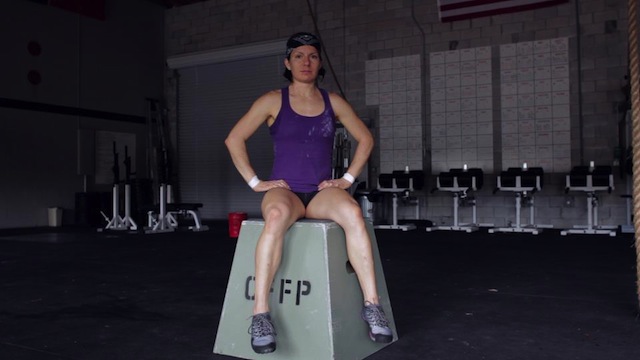
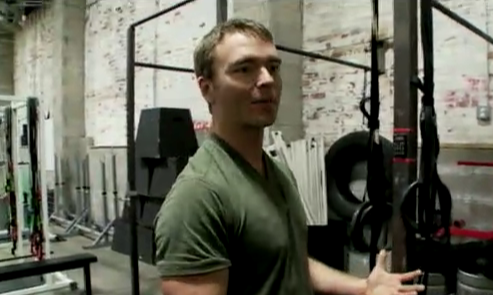

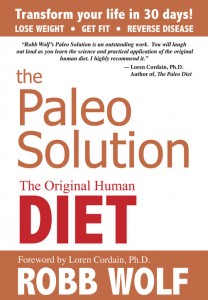


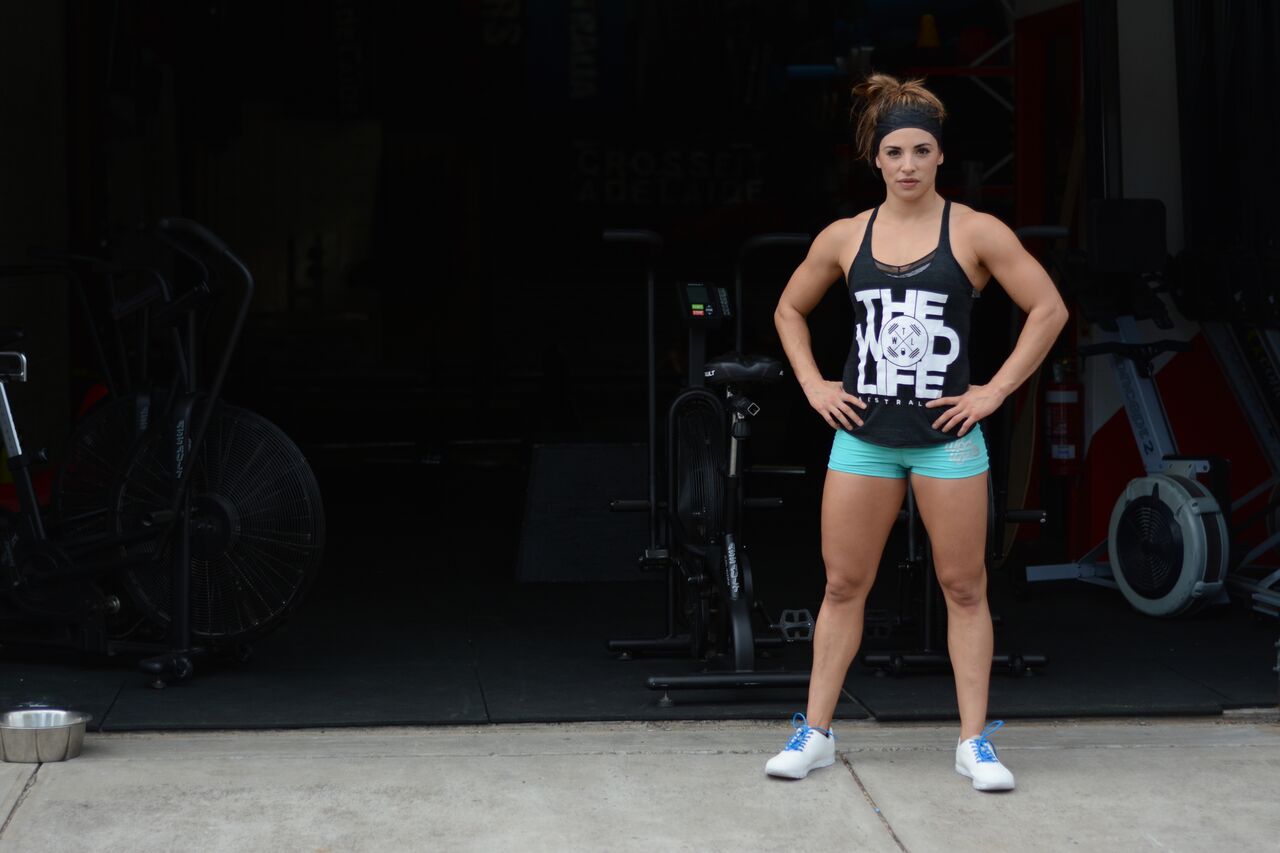
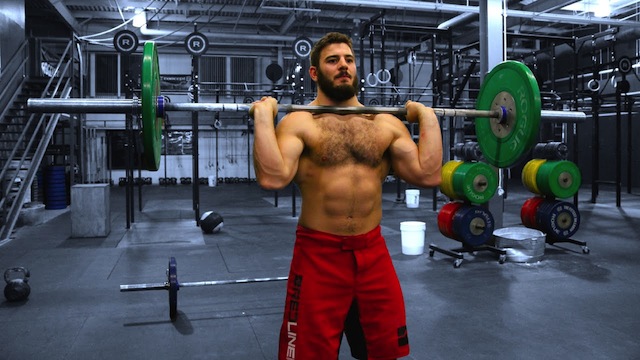
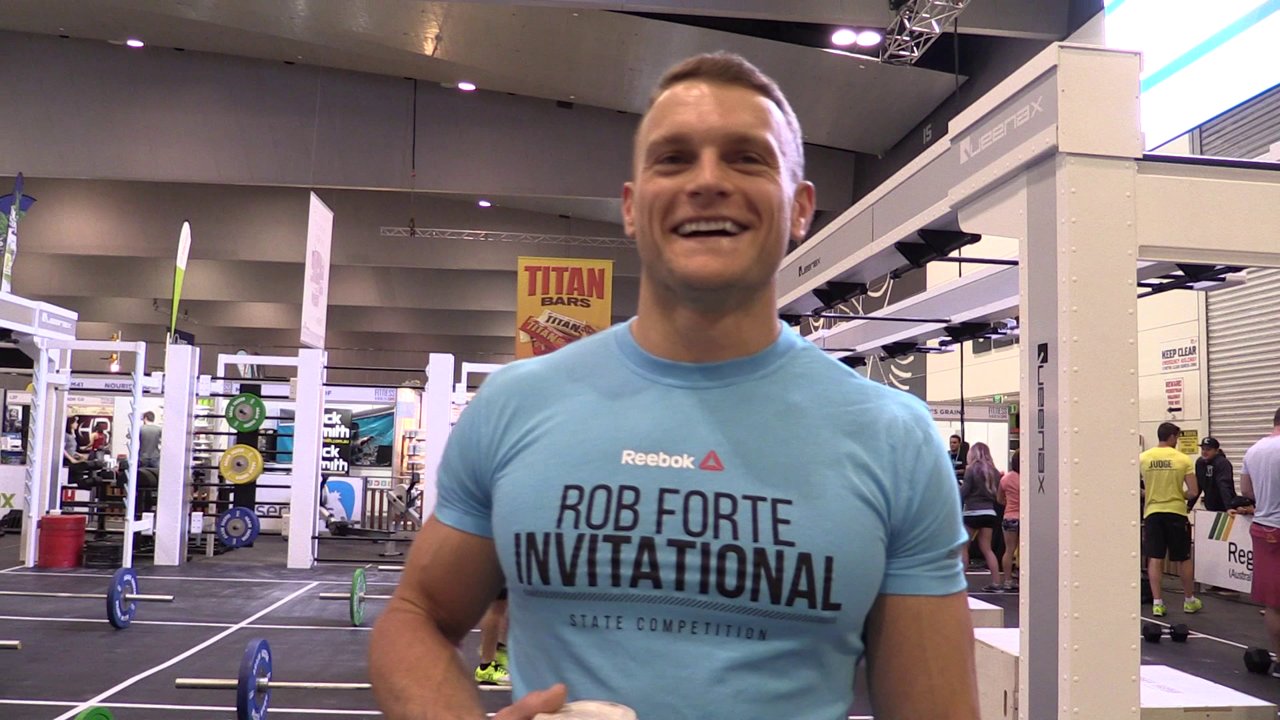
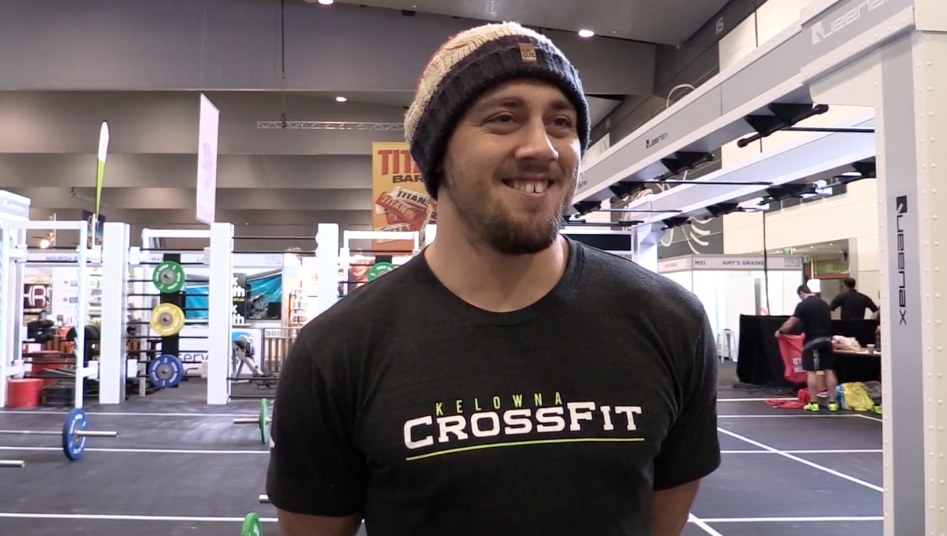
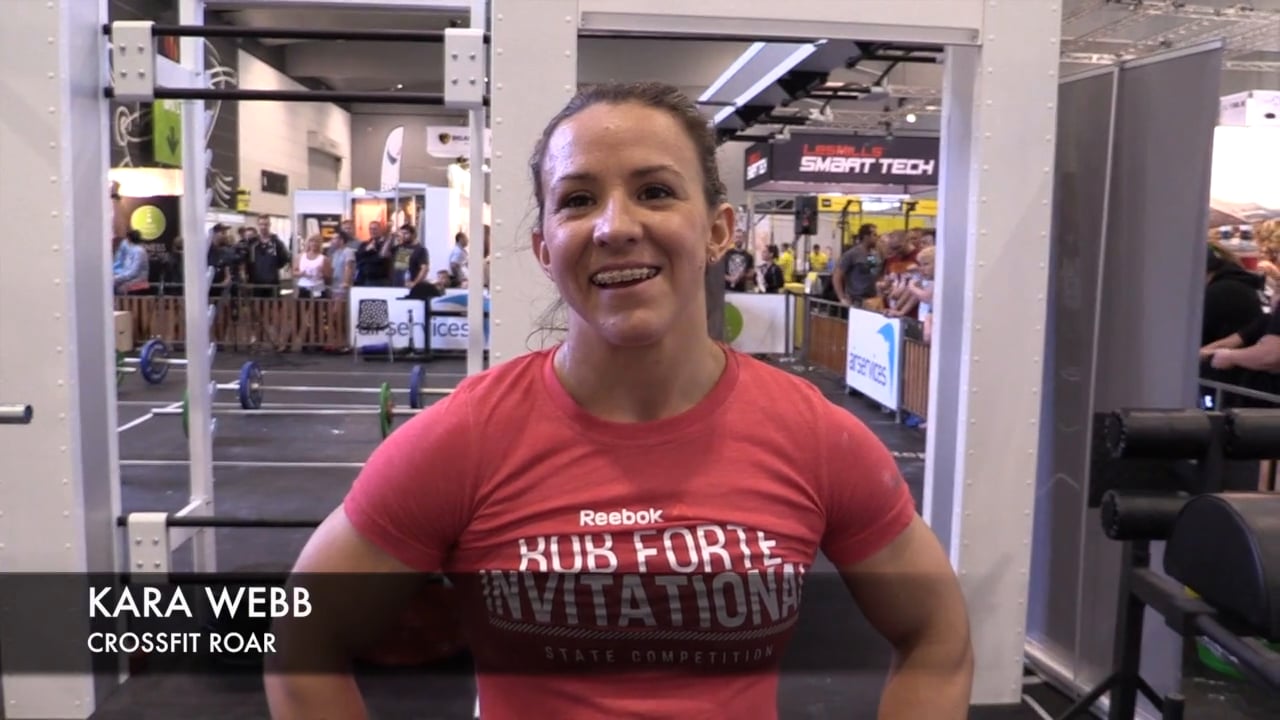
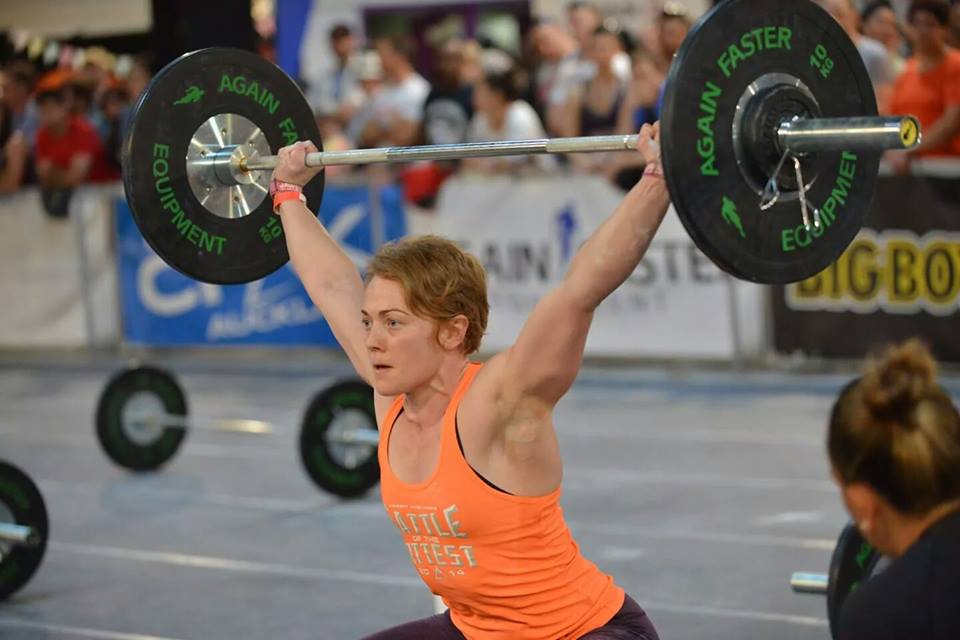
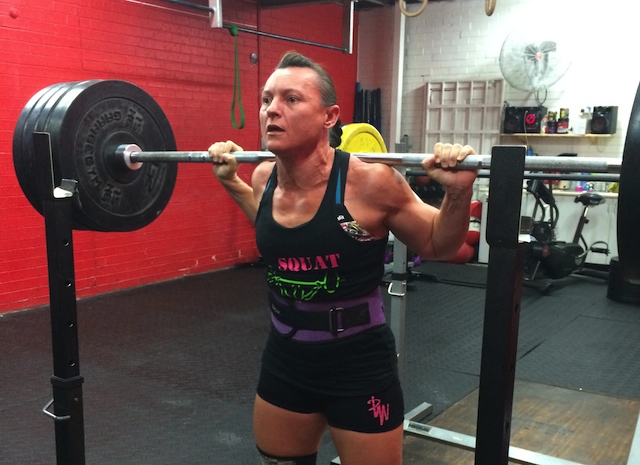
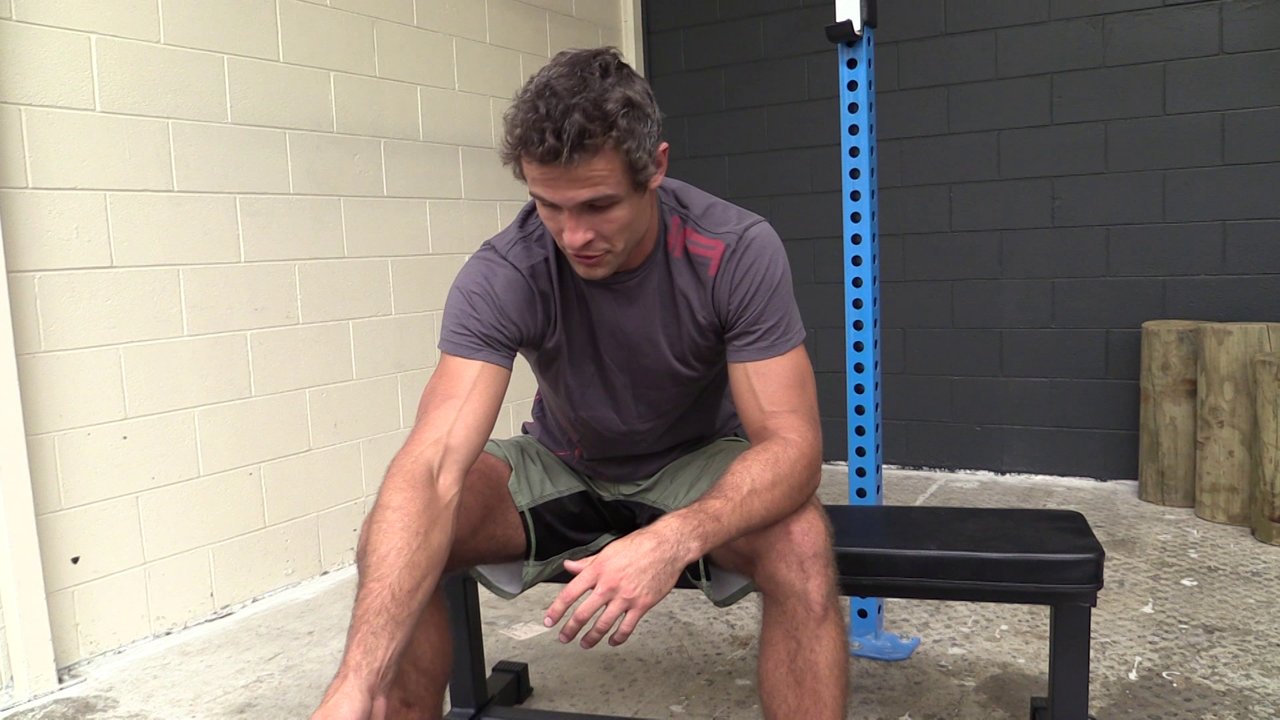
Follow Us